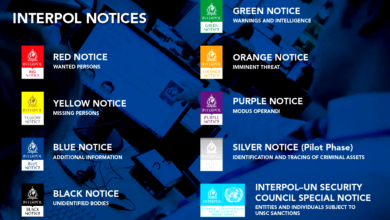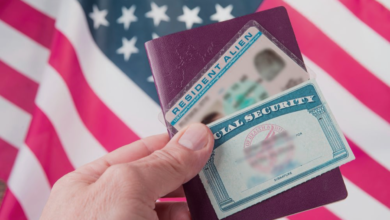How to Apply for a U.S. Green Card: Immigration Law Tips
Applying for a U.S. Green Card? Learn the step-by-step process, eligibility requirements, and expert immigration law tips for approval.

Applying for a U.S. Green Card is a life-changing process that grants permanent residency in the United States, allowing individuals to live, work, and study indefinitely. Whether you’re seeking to reunite with family, advance your career, or build a new life in the U.S., understanding the Green Card application process is essential. However, navigating the complex U.S. immigration system can be overwhelming, with strict eligibility requirements, extensive paperwork, and potential legal hurdles. This guide provides clear, step-by-step instructions and expert immigration law tips to help you successfully secure your Green Card.
The path to obtaining a U.S. Green Card varies depending on your circumstances, including family ties, employment opportunities, or humanitarian status. Each category whether family-sponsored, employment-based, asylum/refugee, or the Diversity Visa Lottery has its own rules and processing timelines. Mistakes in the application can lead to delays or denials, making it crucial to follow the correct procedures. By learning the key steps, required documents, and common challenges, you can maximize your chances of approval and avoid costly errors in your Green Card journey.
How to Apply for a U.S. Green Card
Understanding the Different Types of Green Cards
Determining Eligibility for a Green Card
Before applying, you must confirm that you meet the eligibility criteria for your chosen Green Card category. For family-sponsored applications, the petitioner (sponsor) must prove a qualifying relationship, such as being a spouse, parent, or sibling of a U.S. citizen. Employment-based applicants need an approved PERM labor certification and a valid job offer. Certain factors, such as criminal records, previous immigration violations, or health-related inadmissibility, can disqualify applicants. Consulting an immigration attorney can help assess potential issues and explore possible waivers. Additionally, applicants must demonstrate financial stability or have a sponsor who meets the Affidavit of Support requirements.
Filing the Correct Forms and Documentation
The Green Card application process involves multiple forms, depending on your category. For family-sponsored cases, the U.S. citizen or permanent resident must file Form I-130 (Petition for Alien Relative). Employment-based applicants typically require Form I-140 (Immigrant Petition for Alien Worker). Once the petition is approved, applicants must file Form I-485 (Application to Register Permanent Residence or Adjust Status) if they are already in the U.S. Those applying from abroad go through consular processing at a U.S. embassy. Supporting documents, such as birth certificates, marriage certificates, passports, and police clearance certificates, must be submitted to avoid delays.
Attending the Biometrics Appointment and Interview
After submitting your application, U.S. Citizenship and Immigration Services (USCIS) will schedule a biometrics appointment to collect fingerprints, photos, and signatures. This step is mandatory for background checks. Following this, applicants will receive an interview notice, where a USCIS officer will verify the information provided. The Green Card interview is a critical step where officers assess the legitimacy of the application. Family-based applicants may be questioned about their relationship, while employment-based applicants must confirm job details. Preparing thoroughly, bringing original documents, and answering questions honestly can prevent unnecessary complications.
Handling Delays and Denials
Green Card processing times vary depending on the category, Country of origin, and USCIS workload. Applicants can check their case status online using their receipt number. Delays may occur due to missing documents, security checks, or annual visa quotas. If an application is denied, applicants may appeal the decision or reapply after addressing the issues. Common reasons for denial include incomplete forms, fraudulent claims, or inadmissibility. Seeking legal assistance can help navigate appeals or reapplications effectively.
Maintaining Green Card Status
Physical Residency Requirements
To keep your Green Card valid, you must maintain the U.S. as your primary home. Avoid staying outside the country for more than 6 months at a time, as longer absences may be viewed as abandonment of residency. If you need to travel abroad for over a year, obtain a Reentry Permit (Form I-131) before departing. Without this, you risk losing your permanent resident status upon return.
Tax Obligations for Green Card Holders
The IRS requires all permanent residents to file U.S. tax returns annually, reporting worldwide income. Failing to meet tax obligations can jeopardize your immigration status and future citizenship applications. Keep meticulous records of tax filings, as USCIS may request proof of compliance during status renewals or naturalization processes.
Legal Compliance and Criminal Offenses
Maintain a clean legal record, as certain criminal convictions can lead to deportation. Even minor offenses may cause problems when renewing your Green Card or applying for citizenship. Consult an immigration attorney immediately if you face legal charges to understand potential immigration consequences.
Green Card Renewal Procedures
Most Green Cards expire after 10 years and must be renewed by filing Form I-90 6 months before expiration. Conditional residents (such as those with marriage-based cards) must file Form I-751 within the 90-day window before their 2-year card expires. Delays in renewal can affect employment, travel, and benefits eligibility.
Updating USCIS on Life Changes
Promptly notify USCIS of any address changes (within 10 days) using Form AR-11. Also report major life events like marriages, divorces, or name changes, as these may impact your immigration status. Keeping your records current prevents complications during future USCIS interactions.
Employment and Financial Responsibilities
While Green Cards allow work authorization, prolonged unemployment may raise concerns during status reviews. Maintain stable employment or sufficient financial resources. If sponsoring family members, ensure you meet all Affidavit of Support obligations to avoid legal issues.
Read More: Facing Charges in South Australia? How to Protect Your Rights
Conclusion
Securing a U.S. Green Card is a significant milestone that opens doors to permanent residency and a pathway to American citizenship. While the application process can be complex, understanding the eligibility requirements, preparing strong documentation, and following legal procedures will greatly improve your chances of success. Whether you qualify through family, employment, or another immigration category, staying organized and seeking professional guidance when needed can help navigate potential challenges.
Once you obtain your Green Card, maintaining your status is equally important. By complying with U.S. residency rules, renewing your card on time, and avoiding extended trips abroad, you can protect your permanent resident status. For many, the Green Card is the first step toward achieving the American dream providing stability, opportunity, and the freedom to build a future in the United States. With careful planning and persistence, you can successfully navigate the immigration process and enjoy the benefits of lawful permanent residency.
FAQs
What is the easiest way to get a Green Card?
The simplest path is typically through immediate family sponsorship (spouse, parent, or unmarried child under 21 of a U.S. citizen), as these categories have no annual limits.
How long does the Green Card process take?
Processing times vary family-based cases can take 1-3 years, while employment-based or Diversity Visa cases may take longer due to quotas and backlogs.
Can I apply for a Green Card without a sponsor?
Most categories require a sponsor (family or employer), but exceptions exist for asylum seekers, investors (EB-5), and Diversity Lottery winners.
What are common reasons for Green Card denial?
Applications may be rejected due to criminal records, fraud, incomplete paperwork, or failure to meet financial requirements.
Does a Green Card lead to citizenship?
Yes, after 5 years (or 3 years if married to a U.S. citizen), Green Card holders can apply for naturalization, provided they meet residency and good moral character requirements.











